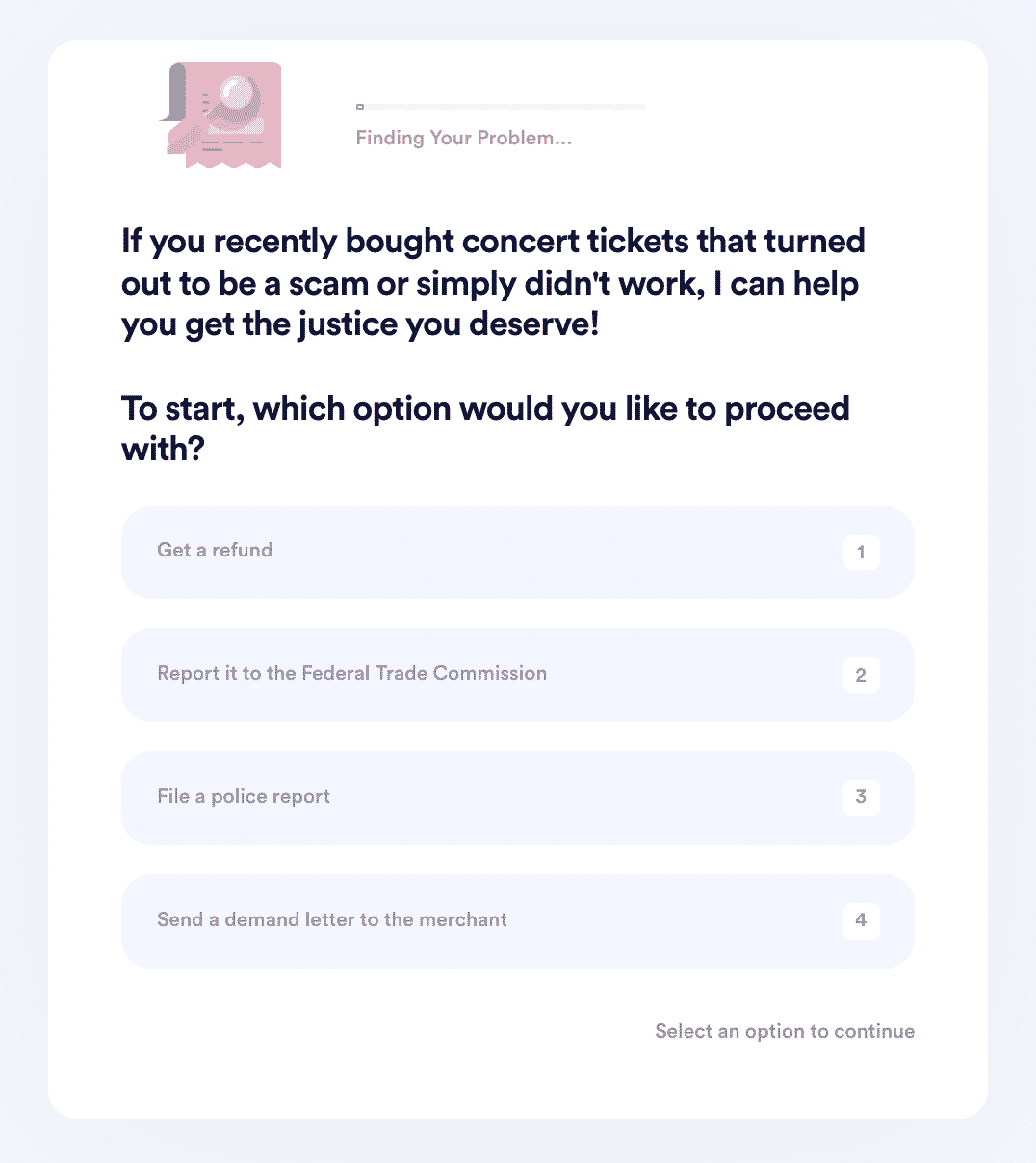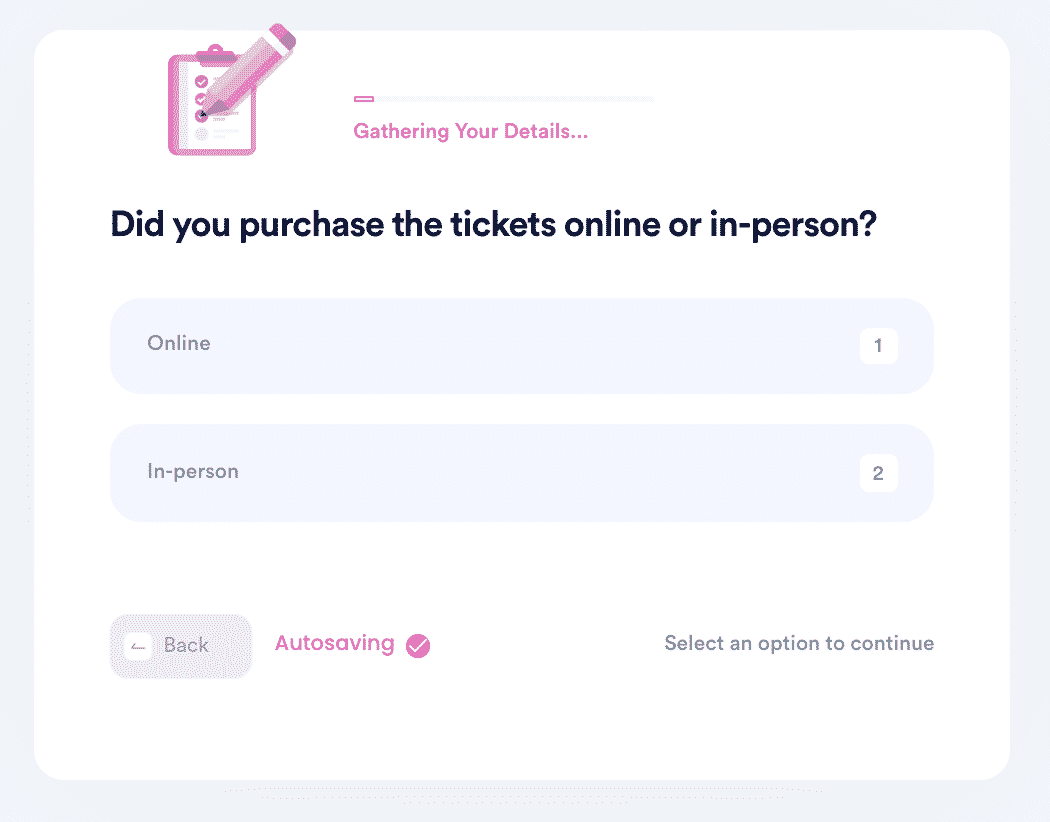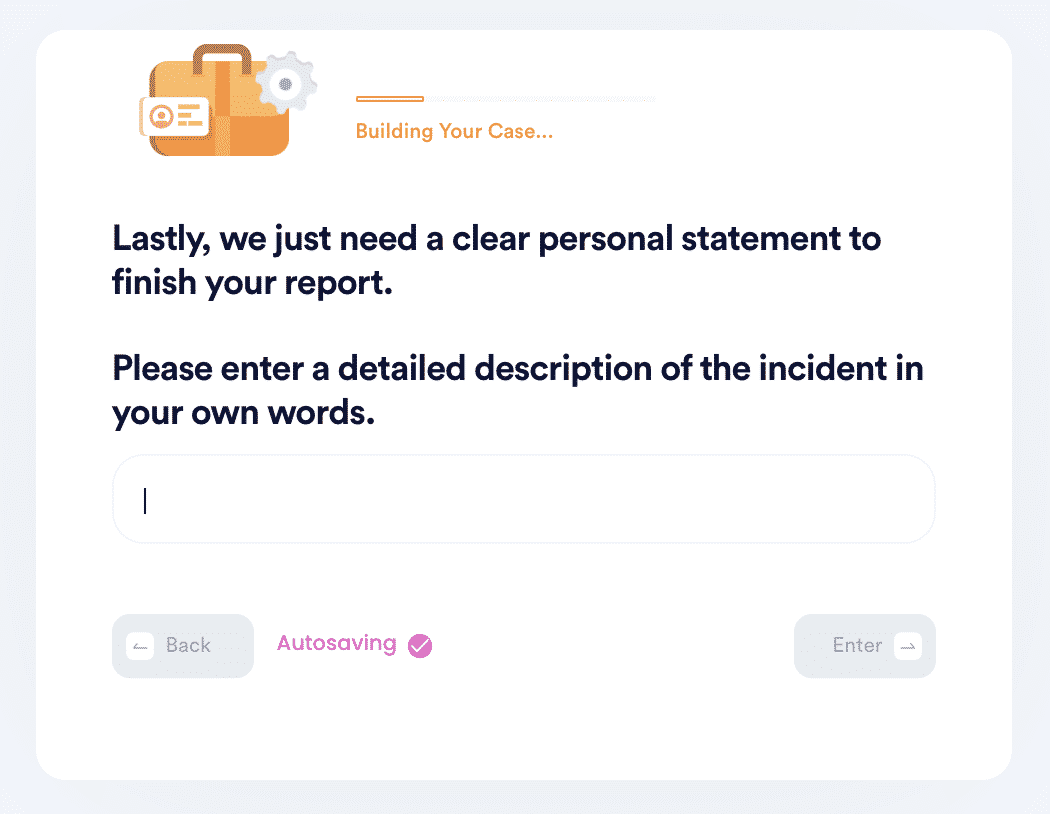How to Identify a TicketsNow Scam
Have you ever purchased a ticket online and realized it was invalid? Well, your initial reaction was disbelief; after all, this is what you're supposed to do when you book your tickets online. Now, if this ever happens again, you don't have to panic. You can verify your ticket online by creating a petition anytime with the help of DoNotPay to help identify a .
DoNotPay is an AI-powered chatbot that helps users contest issues; it can also be used to identify and report . Customers can quickly figure out if they got scammed by a ticket scalper, which has become an increasingly popular way to sell tickets for events or concerts.
With its simple verification process, DoNotPay can help you avoid being ripped off through ticket scams. The chatbot can save you from paying money up front and not receiving what you paid for in return.
How to Tell if Tickets Are Fake
There are several ways of verifying if a ticket you purchase online is genuine. These include:
| Checking the barcode | If the barcode doesn't have any of the correct security features and it doesn't scan, then they're likely fake. |
| Verify merchant | Try to find out if the ticket seller is a verified merchant on the event's website. If they're not, be very cautious. |
| Check the seating chart | If the seats aren't where they're supposed to be, then the ticket is likely fake. |
| Check watermarks and security features | Look for watermarks and security features on the ticket. If these are missing, it's likely a fake ticket. |
If you're still unsure about a ticket, or if you've been scammed in the past, you can use DoNotPay to create a petition for ticket verification.
Common Ticket Scams to Avoid
Online ticket purchasing is a convenient and efficient way to buy tickets; unfortunately, there are many fake sites that mimic legit online ticketing to scam people out of their hard-earned money.
Some common types of ticket scams include:
Here are several ways of detecting ticket scams:
- Tickets that tend to be very cheap or very expensive than the ticket's face value could be ticket scams.
- Tickets that are sent days or weeks before the event. This is often a sign of a scam, as legit tickets would not be sent until much closer to the event.
- Tickets that require payment through wire transfer or gift cards. This is another tell-tale sign of a scam and you should never pay for tickets using these methods.
- Tickets that do not have delivery or dispatch information. Legitimate sites will always include the name and address of the seller, as well as how this information can be verified through public records. If there's no such information on your ticket, then it's likely a scam.
DoNotPay can help you easily identify and report a scam ticket and save your dollars.
How to Report a Ticket Now Scam by Yourself
If you feel that you got scammed when purchasing a ticket online, there are a few steps that you can take to report the issue.
- Try to find out as much information about the scam as possible, such as the name of the ticket website, the type of scam, and what event the ticket was for.
- Report the issue to the FTC (Federal Trade Commission) and ensure to include as much information as possible in your report.
- If you paid for the ticket with a credit card, then contact your credit card company to dispute the charge. It's possible to get a refund for the purchase.
- Report the issue to your local trading standards office or consumer protection agency. The agency may decide to investigate and take action against the company if they feel it is warranted.
- Also file a complaint with the Better Business Bureau and follow up.
- Finally, spread the word about the scam by warning friends and family about the fake ticket website or seller.
DoNotPay can help you take all of these steps; you can quickly report ticket scams using the chatbot's verification process to get refunds through your credit card or file a claim with local law enforcers.
How DoNotPay Can Help
DoNotPay can help you verify any tickets that you have questions about. If you're not sure if a ticket is legitimate, the chatbot is the perfect solution to helping you identify any potential red flags.
The chatbot will ask you a series of questions about the ticket, such as where you bought it and what the event is for. It will then cross-reference this information with a list of known fake ticket websites and provide you with the answer.
Here's how you can use DoNotPay to resolve your ticket scam issues
Here's how you can use DoNotPay to resolve your ticket scam issues in three easy steps:
- Search "concert ticket scam" on DoNotPay and choose whether you would like to 1) File a chargeback to get a refund 2) File a police report (especially for in-person payments 3) Contact the merchant directly with a demand letter 4) Report the scam to the FTC.

- Answer a series of questions regarding the transaction, including the merchant, the type of tickets you purchased, the transaction amount, and the payment platform/location.

- Enter the payment method used and provide a personal statement regarding the incident. Upload any evidence you have and provide your e-signature.

And that's it. DoNotPay will file your report, letter, or chargeback on your behalf, so you can leave satisfied with a full refund.
What Else Can DoNotPay Do?
In addition to helping you verify tickets, the chatbot can also help you with a variety of other issues, including:
With the help of DoNotPay, you can identify the TicketsNow scam and avoid paying for something that doesn't exist. The chatbot is always available to provide assistance with various issues including immigration law, employment law, housing law, bankruptcy protection, divorce proceedings, parking tickets or speeding tickets just to name a few.
DoNotPay is a wonderful tool for people who want to know if they are at risk of being scammed online or by a ticket scalper. If you have ever been fooled before, it's worth checking out DoNotPay and learning more about how this service can help protect yourself from ticket fraudsters in the future.


